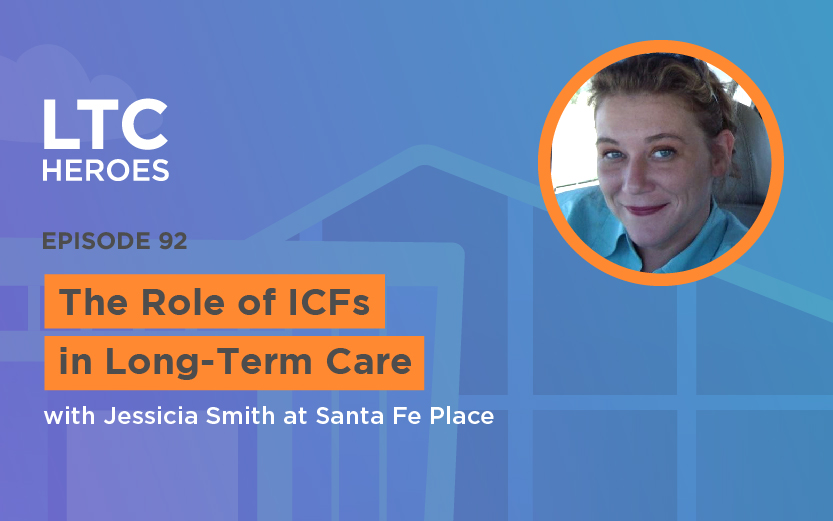On this episode, we speak to Jessicia Smith, Quality Assurance Director at Santa Fe Place, an Intermediate Care Facility (ICF) located in Norman, Oklahoma.
Topics discussed include:
– The purpose of an ICF.
– The history of ICFs and the stigma that surrounded them for years.
– Not doing things for people, but doing things with people.
– Where most patients come from in an ICF.
– The impact of the Olmstead Act on the history of ICFs.
– The differences in ICFs from state to state in the U.S.
– Jessicia’s personal history with ICFs, dating back to her childhood.
– The two distinct types of ICFs.
– Ways the residents are active in the community.
– How to find an Intermediate Care Facility.
Rapid fire Q/A
Can you explain what an ICF is?
The long title is “intermediate care facility for individuals with intellectual disabilities,” but we just use “intermediate care facility” or ICF for short.
What is the most obvious difference between an ICF and a skilled nursing facility (SNF)?
The first thing that most people pick up on is that we are not a setting where we do things for people. We do things with people, or we teach them how to do it themselves. We don’t get someone a glass of water, we show them where the glasses are so they can get it themselves.
Where do most of the people you work with come from?
Our main sources for residents are the Special Education classes in high school. So we have a lot of residents who might be 19, 20 or 21 years old. And many of them come from word-of-mouth referrals.
Why don’t you get referrals from other public organizations and institutions?
Years ago a law was passed called the Olmstead Act that said that people who were placed in institutions had the right to choose to live in the community. It got misconstrued in a way that people think means they don’t have the right to live in a facility, which is not the case. But that is the perception.
How long have you been involved in ICFs?
It goes all the way back to my childhood. My mother worked in the wing of a nursing home that was actually an ICF. That’s where we would go trick-or-treating, or where we would have a Christmas party.
What happens when a patient’s health starts to deteriorate?
There are two types of ICFs, small and large. Small ICFs, which is what we are, do not provide nursing-type services, so we don’t have around-the-clock nursing on staff. So that patient would have to go to another facility.
We appreciate you listening and we are motivated by your feedback. Visit LTCHeroes.com to learn more about us and head to LTCHeroes.com/community to join our exclusive Facebook group for nurses and our exclusive LinkedIn group for long-term care owners. We look forward to seeing you inside the community.
Sponsored by Experience.Care
This episode is brought to you by Experience.Care, the only long-term care EHR backed by guarantees.
Your profitability is our priority and your compliance, our cause. Since 1969.
Get your profitability consultation today at Experience.Care/guarantee. Our website is .Care for a reason. We care about your care. Visit us at Experience.Care.
#seniorliving #longtermcare #seniors #seniorcare

